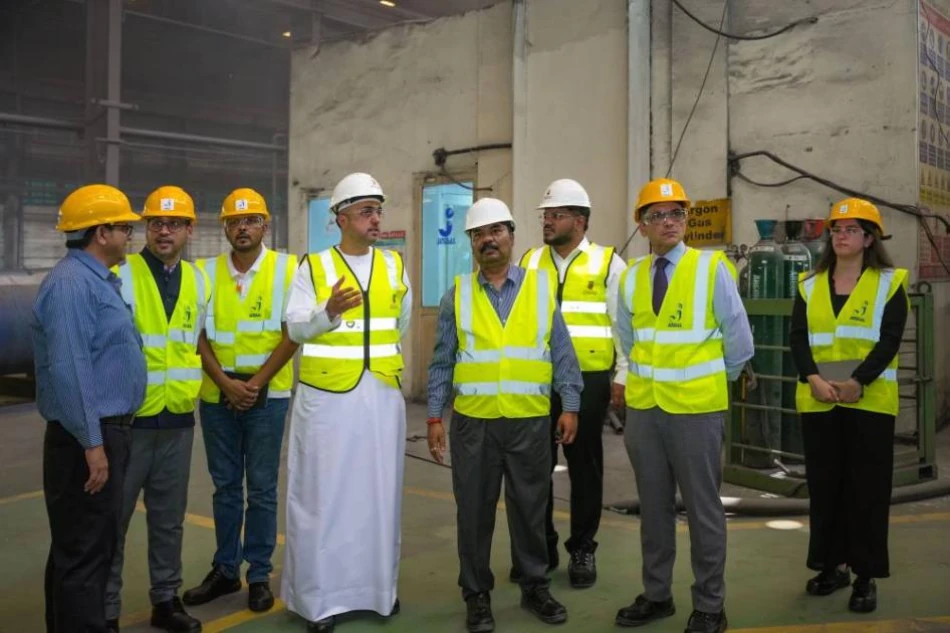
Abu Dhabi's Groundbreaking Energy Efficiency Accelerator Empowers Industrial Sector
Abu Dhabi Launches Industrial Energy Efficiency Accelerator to Transform Manufacturing Sector
Abu Dhabi's Department of Energy has launched an ambitious industrial energy efficiency program targeting 100 manufacturing facilities across the emirate, offering free technical assessments to help companies slash operational costs while advancing the UAE's 2050 net-zero climate goals. The initiative represents a strategic shift toward making energy and water consumption smarter in one of the region's most energy-intensive sectors.
Strategic Framework for Climate Neutrality
The "Industrial Energy Efficiency Accelerators" initiative falls under Abu Dhabi's Energy and Water Efficiency Strategy 2030, providing specialized technical evaluations to identify cost-reduction opportunities and minimize environmental impact without imposing financial burdens on participating facilities.
Engineer Ahmed Al Falasi, Executive Director of the Energy Efficiency Sector at the Department of Energy, emphasized that this goes beyond routine technical auditing. "This represents a pivotal step in our journey toward embedding sustainability in industrial operations," Al Falasi said, describing it as a strategic enablement tool for sustainability transformation.
Targeting High-Impact Industrial Sectors
The program focuses on seven key industrial sectors that collectively consume significant portions of electricity and water in non-oil industries: construction materials, food and beverages, metals, paper industries, rubber and plastics, and chemicals and pharmaceuticals.
The metals sector alone accounts for over 51% of electricity consumption and 26% of water usage annually within non-oil sectors, highlighting the substantial impact potential of efficiency improvements in these industries.
Comprehensive Assessment Methodology
Participating companies receive comprehensive consumption pattern analysis, specialized technical recommendations, and support in developing improvement roadmaps. The program employs a tiered assessment approach, beginning with preliminary field visits (Level 1) followed by detailed evaluations (Levels 2 and 3) to identify waste sources and performance enhancement opportunities.
The department maintains strict confidentiality protocols for all data and information collected during assessment processes, addressing potential corporate concerns about sharing sensitive operational data.
Implementation Timeline and Progress
The program has already completed assessments of 12 industrial facilities and is currently working with more than 14 additional sites. According to the planned schedule, approximately 50 facilities will complete assessments by the end of 2025, with remaining technical evaluations finishing throughout 2026.
Economic and Environmental Impact Potential
This initiative positions Abu Dhabi's industrial sector as a key partner in achieving national climate and sustainable development objectives. By enabling companies to reduce production costs while improving equipment efficiency and performance, the program enhances competitive positioning while supporting future industrial expansion.
Al Falasi noted that amid increasing economic and environmental challenges, smarter energy and water consumption has become essential. The department believes efficiency is the pathway to enhanced performance, reduced emissions, and increased competitiveness.
Regional Leadership in Industrial Sustainability
The program reflects the global trend toward emissions reduction and operational efficiency enhancement, offering Abu Dhabi's industrial facilities a strategic opportunity to become models of environmental excellence and economic competitiveness on both local and international levels.
This comprehensive approach to industrial energy efficiency demonstrates how government-led initiatives can drive private sector transformation without imposing additional costs, potentially serving as a blueprint for other Gulf states pursuing similar climate objectives while maintaining industrial competitiveness.
Most Viewed News

 Omar Rahman
Omar Rahman






